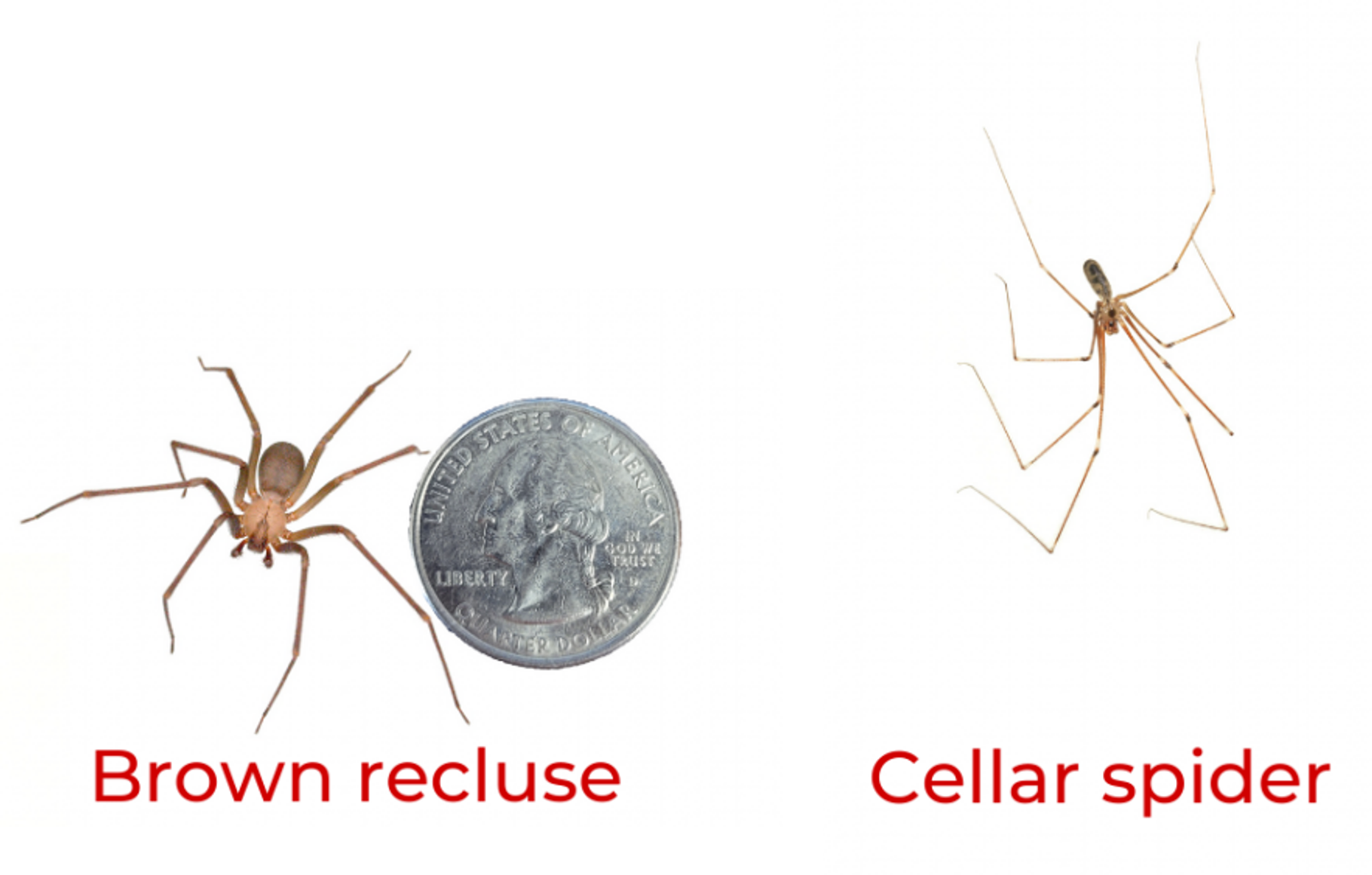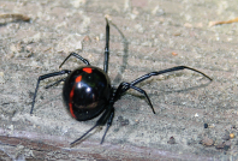Spooky Spiders
Return to Natural Resources Agent Articles
With dropping temperatures people tend to see an increase in the number of insects and spiders coming into their homes. As more insects come into your place of living, more spiders will follow the food source. Often people are concerned about venomous spiders in their homes. In our area we have two types: brown recluse and black widows.
Brown Recluse Spiders
Brown recluse spiders are very abundant in our area. They thrive in basements, attics, and storage areas that are typically dark with small spaces for them to travel through. They are also attracted to these parts of human dwellings because it allows them to feed on the insects that have also found their way inside. Often our office gets samples of spiders that concerned residents bring in to determine if they are Brown Recluse spiders.
A typical Brown Recluse spider has a dark ‘violin’ shape on its lighter brown cephalothorax (the body portion that the legs where the legs attach) and a gray-brown abdomen (hind body part). The whole appearance of the spider is smooth; it lacks the obvious fuzzy looking hairs that you might be familiar with on wolf spiders. Brown Recluse spiders don’t make traditional webs in the corners of buildings to catch prey, instead they travel along baseboards and boxes looking for insects to consume.

Photo from Nebraska Research and Extension comparing a Brown Recluse spider to a Cellar spider.
A majority of Brown Recluse spider bites are asymptomatic, but their venom contains enzymes and active biological substances that can cause complications like necrosis (tissue decay). Bites are not common as Brown Recluse spiders are not aggressive. Most bites happen in situations where the spider is threatened or being crushed, like when someone rolls onto a spider in their unmade bed or pulls on pants that were left on the floor that a spider crawled into.
There is a lookalike spider that is often mistaken for a Brown Recluse due to similar coloration. Cellar Spiders are also light brown and sometimes have a dark mark on their thorax. However, Cellar spider abdomens tend to be more oblong shaped and have markings, their legs are much longer and thinner and they build wispy webs in corners. Cellar spiders are considered harmless because they don’t have necrotic venom like Brown Recluse spiders.
Black Widow Spiders
Black Widow spiders also live in quiet spaces, though they are more common outdoors than inside. Lightly trafficked areas in sheds, garages, around woodpiles, and other yard areas are where you may find these spiders. Black Widows spin webs that have a messy appearance, which are used to trap prey, hold egg sacs, and communicate with other spiders. This is often where people spot the spider.
Black Widow spiders are iconic in their shiny black appearance, smooth thick black legs that taper, and red marking(s) underneath their abdomen. There are three species in North America, the most abundant in Kansas is the Northern Black Widow that is identified by the red abdomen marking in an ‘hourglass’ shape.

Northern Black Widow spider. Photo from K-State Research and Extension publication.
Black Widows have the strongest venom of all spiders in North America (and it’s stronger than rattlesnake venom), but since they’re small most bites don’t contain large doses. Only the females have venomous bites and while they may be aggressive around their nest if there are eggs, they usually will retreat if given the opportunity.
Most spiders in your home are there eating other pests, so management actions should include reducing prey availability by plugging holes and reducing habitat and food sources.
Additional Resources
Read more on KSRE publication about Structural Pests: Black Widow Spiders https://bookstore.ksre.ksu.edu/pubs/MF3346.pdf or Brown Recluse Spiders https://bookstore.ksre.ksu.edu/pubs/mf3133.pdf.
Nebraska Research and Extension Spider Resources
Contact Us